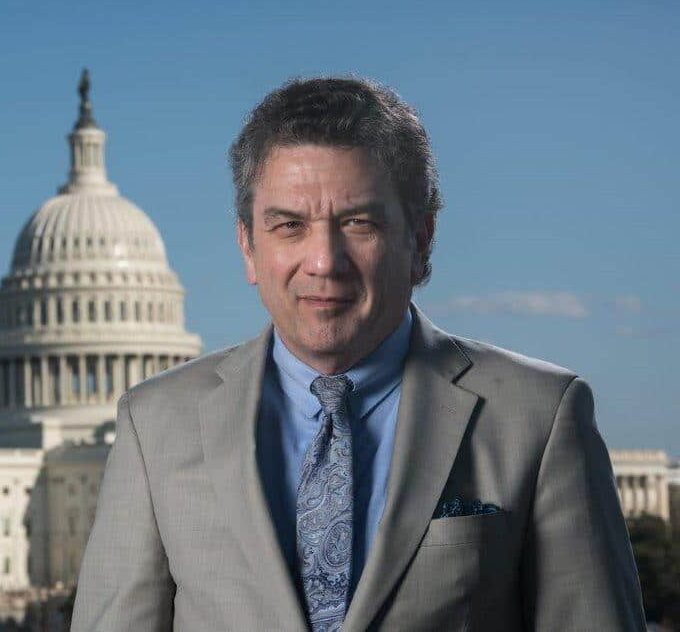Representing Clients Under Federal Criminal Investigation
A federal criminal investigation is a minefield for the unwary. Even if you believe you have done nothing improper, you should never assume that the government sees it your way. And if you are worried that you did something wrong, it is foolish to think that you can finesse the situation or explain away the problem on your own. It is most unwise to speak with a federal agent or prosecutor, or respond to a grand jury subpoena without first discussing your case with an experienced federal white collar criminal defense lawyer.
If your case is handled properly at the investigation phase, you may never face charges. The earlier you speak to an experienced white collar lawyer, the more options you will have.
Experienced Defense in a Wide Range of Cases
I am white collar criminal defense attorney Solomon L. Wisenberg, and I protect the rights and interests of clients who get swept up in federal investigations. I have successfully represented clients involved in a wide range white collar criminal and regulatory inquiries, including:
- SEC fraud inquiries and other SEC investigations
- Federal agency probes
- Fraud allegations
- Public corruption charges
- False statements to the government
- Pre-trial hearings
Your Status Can Quickly Change; Limit Your Exposure
All individuals coming into the orbit of the federal prosecutor and grand jury fall into one of three categories: witness, subject or target.
A target is someone who stands a 50 percent or more chance of being criminally charged. As a practical matter, once an individual has been branded a target, the prosecutor has decided that the individual is guilty. The prosecutor is simply looking for strong enough evidence to indict.
A witness is not under any suspicion, as yet, but simply has information of interest to a grand jury.
A subject is somewhere in-between a target and a witness. He or she has engaged in conduct that may look suspicious or unethical, but the prosecutor is not certain that a provable crime has been committed and wants to do more investigating in order to be sure.
Even though your status as a witness, subject or target may be important in guiding your strategy during a particular phase of a federal white collar crime investigation, the key thing to remember about these categories is that they are ultimately meaningless and offer you no protection.
Why? Because even if you are currently a witness or subject, there is no guarantee that your status will remain unchanged. A prosecutor’s written statement to your attorney that you are a mere witness and should thus have no qualms about talking to investigators or testifying before the grand jury, is not worth the paper it is written on.
A witness appearing before the grand jury (or in front of a federal agent) appears utterly exposed, unless he or she is testifying under some additional form of protection such as use or transactional immunity.
It is necessary therefore, from the outset of a white collar crime investigation, to base any strategy on a realistic assessment of your potential criminal exposure, rather than on the crumbs and empty promises thrown at you by an assistant United States attorney.
When Federal Agents Come Knocking
Before seeking a subpoena, federal investigators will often come to your door and start asking you questions. It is important to realize that the agents’ true purpose is almost always to gather evidence against you.
Federal Postal Inspectors, FBI Special Agents, IRS Criminal Investigation Division (CID) Agents and other federal law enforcement officers are highly skilled in eliciting damaging statements from subjects and targets. Their goal is typically to have the subject or target admit to wrongful conduct or falsely deny such conduct.
But what if you do not consider yourself a subject or target? Unfortunately, the average citizen is not qualified to make that determination. Conduct that you considered to be completely acceptable when you engaged in it may now be thought of as wrongful by the government. Remember, many federal white collar crimes do not require the government to prove that you knew you were violating the law. If you admit to the conduct, you may be admitting to the crime.
Danger: Submitting to an Interview Without Legal Representation
Even assuming your absolute innocence of the wrongdoing being investigated, the federal law enforcement agent has had the luxury of minutely studying all of the relevant paperwork surrounding that investigation. You, on the other hand, may not have thought about the subject matter, much less the underlying details, of his or her inquiry for years. You will probably not be shown any of the pertinent documents before the interview begins.
You could easily make factual mistakes during your interview. What happens then? Maybe nothing, if you are dealing with an experienced agent who surmises that you are trying to tell the truth. But if the agent is inexperienced and unsure of your culpability or if you are not confirming his or her version of events, your mistakes can easily be interpreted as intentional falsehoods under federal law.
Usually, the safest course of action in these situations is to politely tell the agents that you have an attorney, or are in the process of hiring a lawyer, and that you are not going to discuss anything with them before consulting with an attorney.
Contact a Federal Criminal Investigation Defense Attorney
Feel free to contact me, a white collar criminal defense lawyer Solomon L. Wisenberg, at the Washington, D.C., law offices of Nelson Mullins Riley & Scarborough, LLP, for a candid assessment of your criminal exposure, before you make any damaging admissions to federal agents.
You may also call me at 202-689-2922 during normal business hours, or at 202-257-7846 if an urgent matter arises during the evening or weekend.



